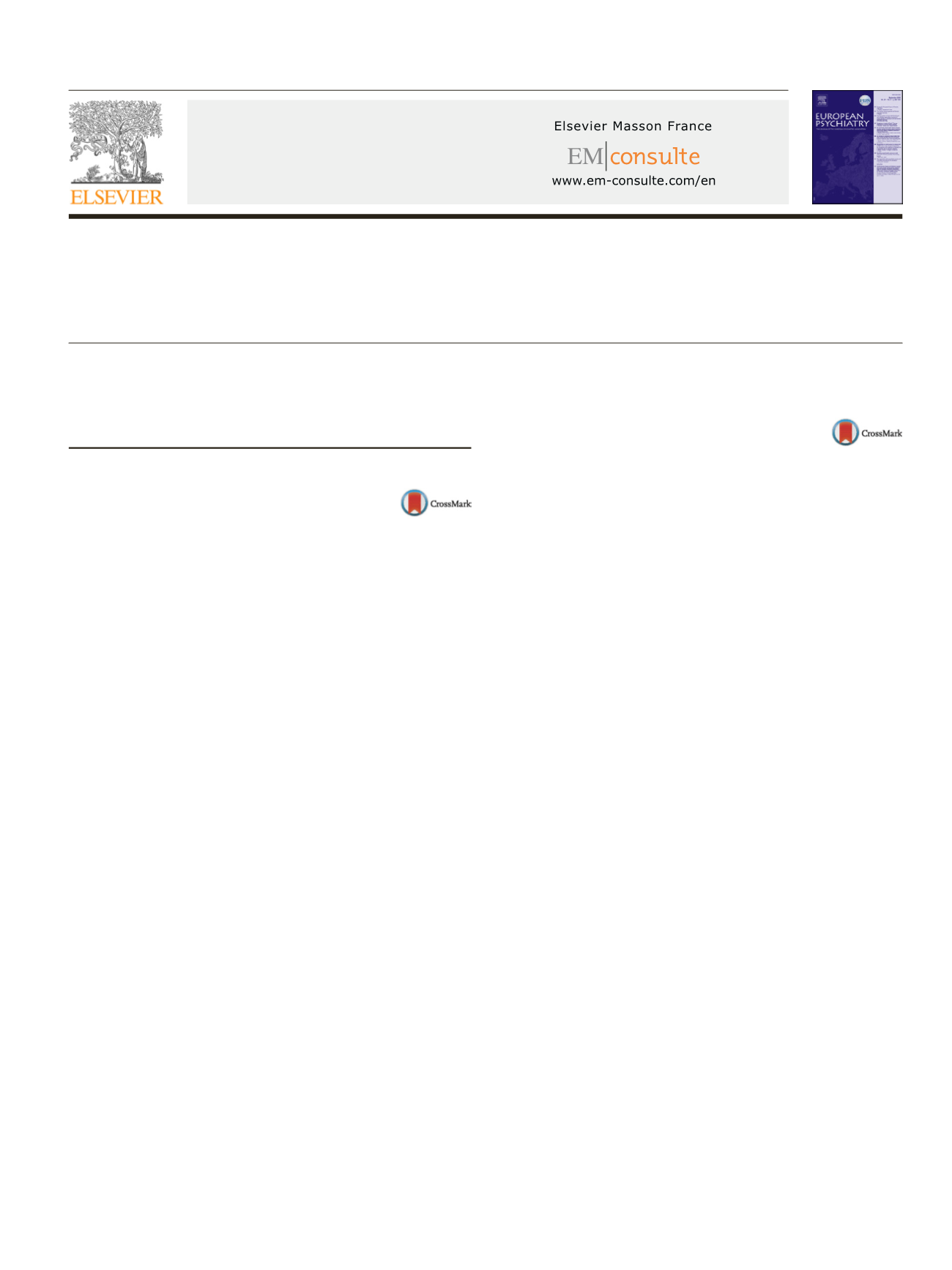
 European Psychiatry 41S (2017) S847–S910
European Psychiatry 41S (2017) S847–S910
Available online at
ScienceDirect
www.sciencedirect.com25th European Congress of Psychiatry
ePoster viewing part 8
e-Poster viewing: Sexual medicine and mental
health
EV1346
Sexual satisfaction among women
with breast cancer
S. Abdollahifard
1 ,∗
, M. Maddahfard
21
Jahrom University of Medical Sciences, Jahrom, Iran
2
BHOWCO Trading GmbH, Frankfurt am Main, Germany
∗
Corresponding author.
Background
Despite the outstanding breakthroughs in medical
sciences, breast cancer is still regarded as one of the most impor-
tant diseases, worldwide. This condition is also the most common
cancer among women and the second leading cause of death.
Aim
This study aimed to investigate on sexual satisfaction among
breast cancer patients
Methods
This review article has written by more than 32 pub-
lished papers in websites during 2008 until 2016.
Result
Esfandiari et al. (2015) have done a study about a compar-
ison of marital satisfaction, public health and body image among
normal subjects and breast cancer patients with breast evacuation
and conservation in Tehran, Iran. The result of this study showed
that women with breast cancer were significantly different from
normal subjects in terms of marital satisfaction, mental health and
body image.
Rezaipour et al. (2004) has done a study about relationship between
women’s experience of orgasm and marital relation satisfaction in
health care centers of Arak. This result showed there was a rela-
tionship between women’s orgasm experience and the amount of
satisfaction from marital relation.
Nekoueifard and Jahangiry (2014) have done a study about sex-
ual function among patients with breast cancer in Tehran. In their
study, therewas ameaningful and direct relationship between type
of surgery and sexual satisfaction. The results of that study show
that disease and treatment have a considerable influence onmarital
relationship.
Conclusion
It seems that dealing with marital satisfaction of
women during the early stages of breast cancer diagnosis and treat-
ment is a necessary for mental health.
Disclosure of interest
The authors have not supplied their decla-
ration of competing interest.
http://dx.doi.org/10.1016/j.eurpsy.2017.01.1676EV1347
Persistent genital arousal: Differential
diagnosis and management in the
emergency room of psychiatry
C.M. Calahorro
1 ,∗
, M. Guerrero Jiménez
2, B.M. Girela Serrano
21
Hospital Universitario San Cecilio, Unidad de Salud Mental,
Granada, Spain
2
Santa Ana Hospital, Psychiatry, Motril, Granada, Spain
∗
Corresponding author.
Background
We describe the case of a 50 years old woman who
attended the emergency room for complaints that involves contin-
uous orgasms in the last two months that she describes “as waves”.
The woman is a widow and claims not to have had sexual relation-
ships since her husband died four years ago.
Main objective
Persistent genital arousal disorder (PGAD) is a rel-
atively unknown clinical condition affecting several women. Moral
standards, as well as conservative beliefs regarding sexuality, are
believed to be involved in the etiology andmaintenance of this syn-
drome. Nevertheless, there are no consistent data on the content
of the beliefs system presented by these women.
PGAD It has been identified as a condition of often unprovoked
genital arousal associated with a significant level of distress.
PGAD is not well understood, and no definitive cause has been
determined.
Our main objective was to review the literature on PGAD, iden-
tify possible causes of the disorder, and provide approaches to the
assessment and treatment of the disorder based on the authors’
experience and recent literature.
Comments
PGAD is a potentially debilitating disorder of
unwanted genital sensation and arousal that is generally sponta-
neous and unrelenting. Since its first description in 2001, many
potential etiologies and management strategies have been sug-
gested. PGAD likely represents a range of conditions manifesting in
unwanted genital sensations. Successful treatment requires a mul-
tidisciplinary approach and consideration of all reversible causes
as well as cognitive therapy.
Disclosure of interest
The authors have not supplied their decla-
ration of competing interest.
http://dx.doi.org/10.1016/j.eurpsy.2017.01.16770924-9338/


















